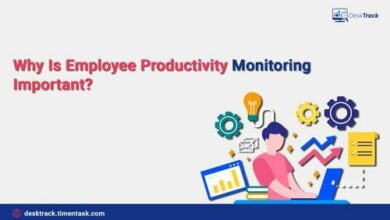Successful CFD Trading Strategies for Beginners

Trading Contracts for Difference (CFDs) can be an enticing venture for those looking to dip their toes into the world of financial markets. However, it’s important to understand that CFD trading carries a level of risk, and beginners need a solid strategy to navigate these waters successfully. In this blog post, we will explore some effective CFD trading strategies tailored for beginners to help you get started on the right foot.
1. Educate Yourself
Before you even think about placing your first CFD trade, take the time to educate yourself about the financial markets and how CFDs work. Understand the basics of trading, including concepts like leverage, margin, and risk management. There are numerous online courses, webinars, and books available to help you build a strong foundation in trading. The more you know, the better equipped you’ll be to make informed decisions.
2. Choose the Right Broker
Selecting the right CFD broker is crucial. Look for a reputable broker with a user-friendly trading platform, competitive spreads, and a wide range of assets to trade. Additionally, confirm that the broker is subject to relevant financial authority regulations. This provides an extra layer of security for your funds and ensures that the broker adheres to industry standards. https://mtrading.com/, an online broker offering advantageous trading terms to novice and experienced traders, is a prime example of a brokerage that meets these criteria.
3. Start with a Demo Account
Once you’ve chosen a broker, start with a demo account. This allows you to practice trading without risking your own money. Use the demo account to familiarize yourself with the trading platform, test your strategies, and gain confidence in your abilities. Treat the demo account as seriously as you would a live one, as it’s a valuable learning tool.
4. Develop a Trading Plan
A trading plan is your roadmap to success in CFD trading. It should include your goals, risk tolerance, entry and exit strategies, and rules for managing your trades. Your plan should also specify the maximum amount of capital you are willing to risk on a single trade. Having a well-defined trading plan will help you stay disciplined and avoid emotional decision-making.
5. Practice Risk Management
Risk management is a fundamental aspect of successful CFD trading. Never risk more capital than you can afford to lose. Use stop-loss orders to limit potential losses, and set profit targets to lock in gains. Diversify your portfolio by trading different assets to spread risk. Remember that CFDs are leveraged products, which means that losses can exceed your initial investment.
6. Technical and Fundamental Analysis
To make informed trading decisions, you should use both technical and fundamental analysis. Technical analysis involves studying charts, patterns, and indicators to identify potential entry and exit points. Fundamental analysis, on the other hand, focuses on the financial health of the underlying asset and its market fundamentals. Combining these two approaches can provide a more comprehensive view of the market.
7. Keep Emotions in Check
Emotions have the potential to become a trader’s most formidable adversary. Fear and greed often trigger impulsive decisions that ultimately lead to financial losses. To maintain a successful trading journey, it is crucial to adhere to your well-structured trading plan and refrain from making decisions influenced by emotional fluctuations. In cases where a trade moves against your expectations, it is essential to acknowledge the loss and promptly refocus on your broader trading strategy. Seasoned traders understand that losses are an inherent aspect of the trading landscape, and they possess the discipline to prevent them from veering off their overall course.
8. Continuous Learning and Adaptation
The financial markets are constantly evolving, so it’s essential to stay up-to-date with market news and trends. Continuously educate yourself and adapt your trading strategies as needed. What works today may not work tomorrow, so be flexible in your approach and open to learning from your experiences.
In conclusion, successful CFD trading for beginners requires a combination of education, discipline, and a well-thought-out strategy. By following these tips and staying committed to your trading plan, you can increase your chances of success in the exciting world of CFD trading. Remember that patience and persistence are key, and it’s essential to manage risk responsibly throughout your trading journey.












